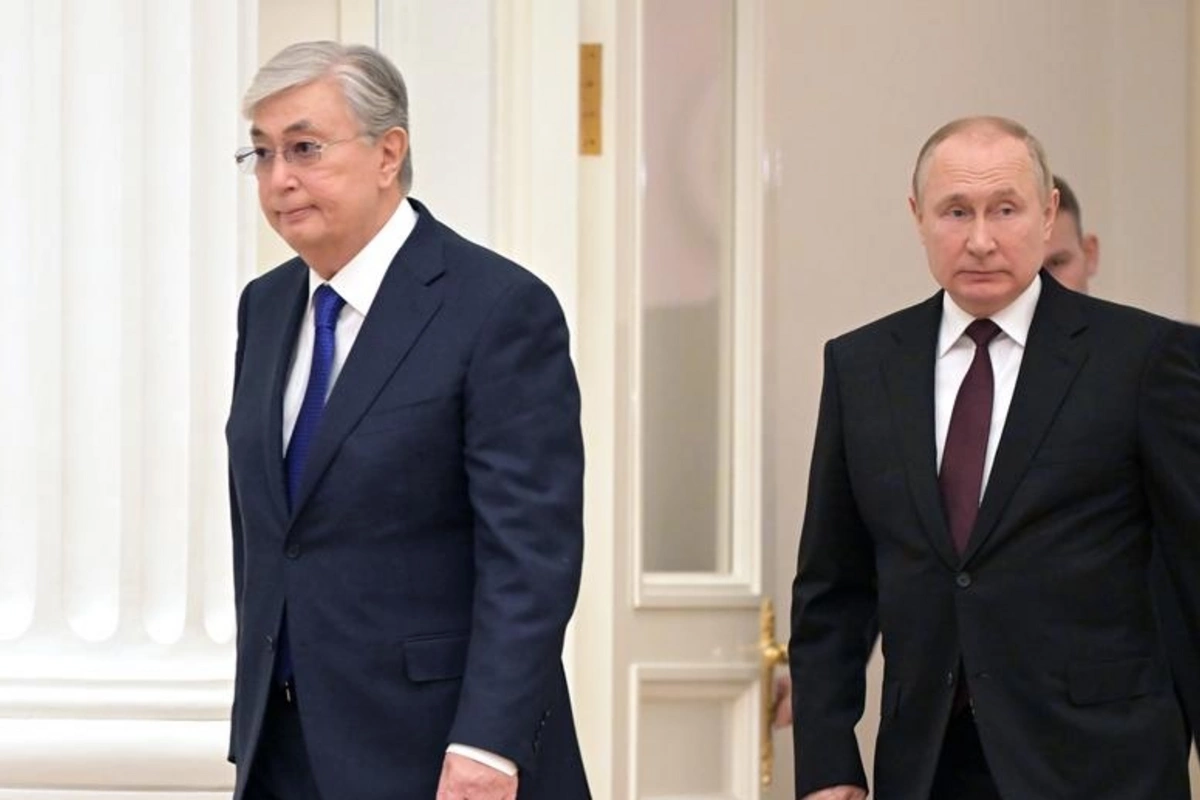
Kremlin pool/EPA/EFE
Russia finds itself in an embarrassing position, forced to apologize to Azerbaijan over a significant aviation incident that has created an unexpected rift between the two former Soviet republics. Once allies, their relationship-marked by Azerbaijan’s support for Russia during sanctions and Russia’s backing of Azerbaijan in its conflict with Armenia-has been strained by the crash. The tensions evolved when Russia, amid its war with Ukraine and ongoing drone threats, accidentally shot down an Azerbaijani civilian plane. In response, Azerbaijani President Ilham Aliyev demanded full accountability, sharply criticizing Russia’s apology while avoiding full responsibility. While some see this as political posturing by two authoritarian leaders, the discord is adding a new layer of complexity to their partnership. Kazakhstan, a common ally of both and the site of the plane crash, is now caught in the middle. As authorities prepare to hand over the black box data to Kazakhstan, the country faces the challenge of managing the geopolitical fallout, The Caspian Post reports citing foreign media.
Kazakhstan is effectively mediating between two feuding partners, both critical to its interests. Leaning too far toward one risks alienating the other, particularly if they reconcile. Russia, as Kazakhstan’s protector and economic partner, wields considerable influence over the country’s actions. Russia holds leverage through the pipeline transporting oil from Kazakhstan’s Tengiz oil field to export markets via the Russian port of Novorossiysk. Managed by the Caspian Pipeline Consortium, this pipeline handles around 80% of Tengiz oil exports. Moscow could disrupt operations to influence Kazakhstan’s decisions or punish it for perceived missteps. As seen in the summer of 2022, Russia can halt the transportation of Kazakh oil to Europe under the guise of infrastructure repairs. This could result in significant losses for Kazakhstan, signaling a harsh warning from Russia.
At this juncture, Kazakhstan may have even more to lose by alienating Azerbaijan. The two countries are crucial transit points for East-West trade along the Middle Corridor, and they are also collaborating on a consortium to ship solar- and wind-generated power to Western markets. For Astana, Baku is a very important partner, and in the future, an even more vital one, particularly in the joint development of the Trans-Caspian route.
Despite Kazakhstan’s central role in the investigation, Kazakh officials have sought to remain aloof from the growing controversy. In the hours following the crash, they appeared to amplify alternative theories promoted by Russia, including the now-debunked claim that an oxygen tank inside the aircraft exploded. Kazakh officials also initially supported a Russian proposal for a CIS commission to handle the investigation, which would have given Moscow greater influence over both the scope and final report of the probe. As mounting evidence, including survivor testimonies, pointed to a shoot-down, Kazakhstan shifted to a more neutral stance. In the final days of December, Kazakh President Kassym-Jomart Tokayev held telephone conversations with both Azerbaijani President Ilham Aliyev and Russian President Vladimir Putin, as reported by the presidential press service, though the substance of those talks remained undisclosed.
State-controlled media in Kazakhstan has largely refrained from speculating on the cause of the crash, instead highlighting the government’s commitment to uncovering the truth. Official publications emphasize that Kazakhstan is diligently working to determine what happened, strictly adhering to international guidelines. Transport Minister Marat Karabayev, for example, cited the International Civil Aviation Organization’s Chicago Convention to justify sending the jet’s black boxes to Brazil-a move likely to irk Russia, given its apparent desire to suppress evidence of a shoot-down. Independent media outlets in Kazakhstan, such as Orda.kz, have taken a more critical approach, often highlighting statements from Azerbaijani President Ilham Aliyev and Western officials who attribute responsibility for the tragedy to Russia. However, the Kazakhstan government has notably refrained from directly blaming Russia, a stance that remains intriguing.
On most occasions, these three countries manage to resolve their issues due to the connection between flawed administrations, shared interests in blocking Western influence, and a convenient yet unholy alliance between businesses and politicians. The current drift is part of an authoritarian theater, meant to keep their populations in check. However, it’s noteworthy that Azerbaijan and Kazakhstan have reached a point where they can challenge Russia, showcasing the evident decline of Russian power. If this shift continues and the political theater backfires, Azerbaijan may lean closer to Turkey, Saudi Arabia, and the U.S., further escalating tensions. Caught between the Russian and Turkic spheres, Kazakhstan could face even more significant challenges. A shift in alliances seems to be unfolding in Central Asia, and this evolving tension deserves careful monitoring.
Share on social media